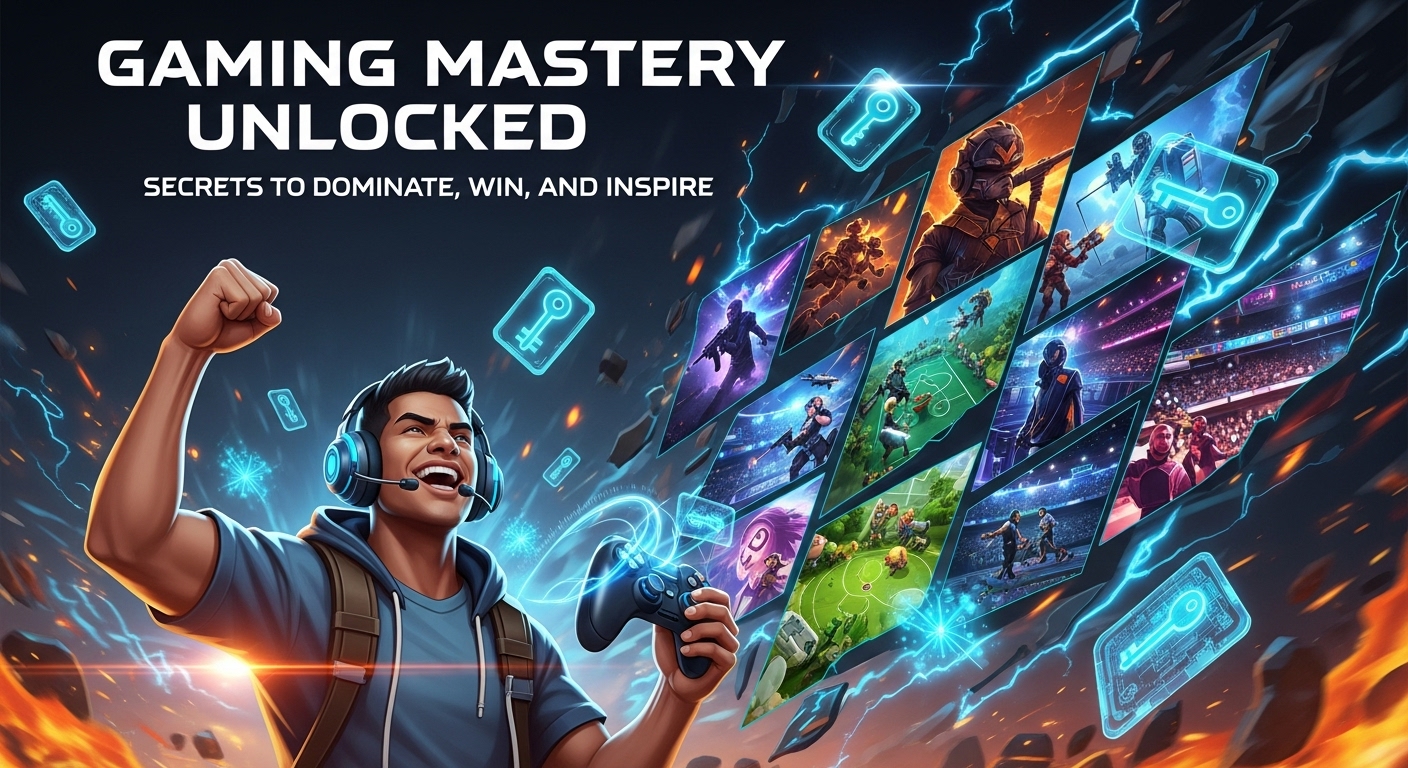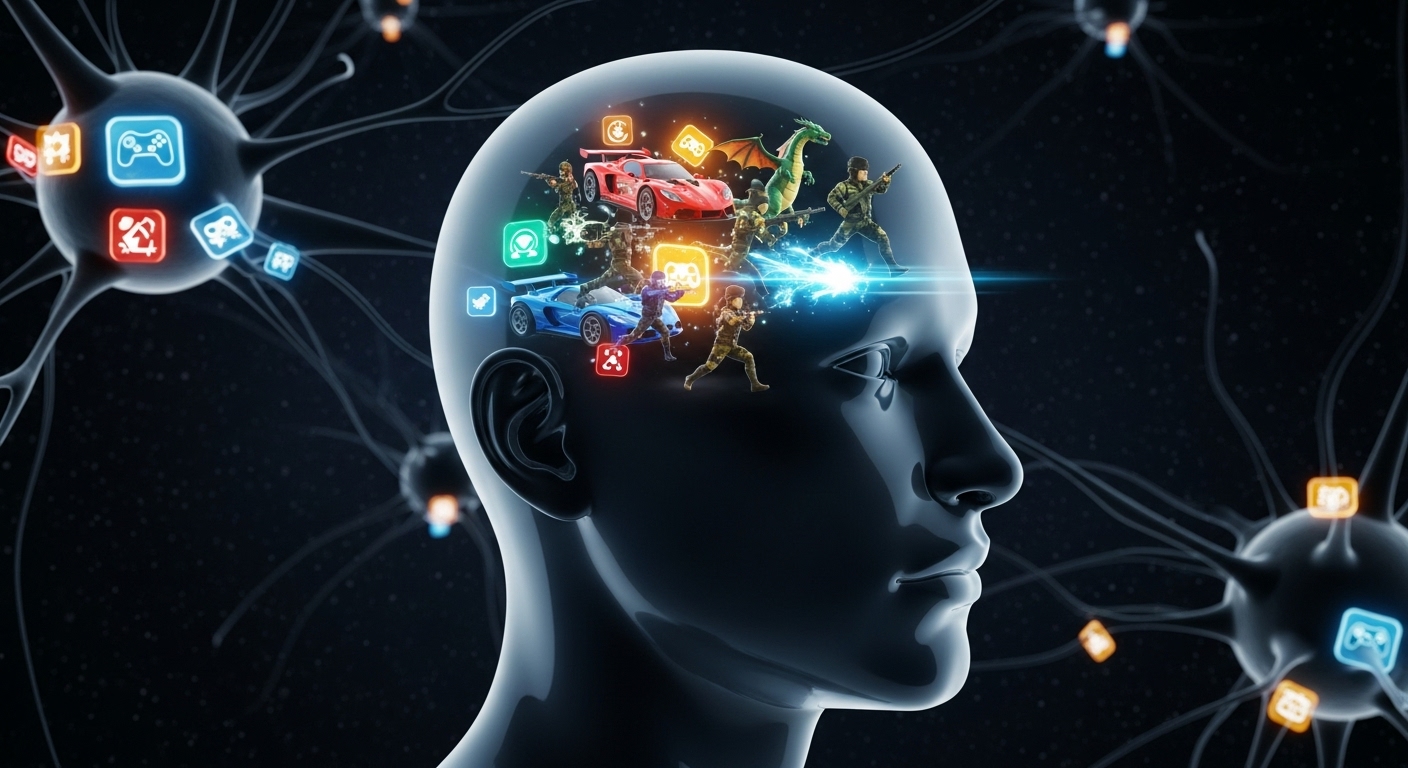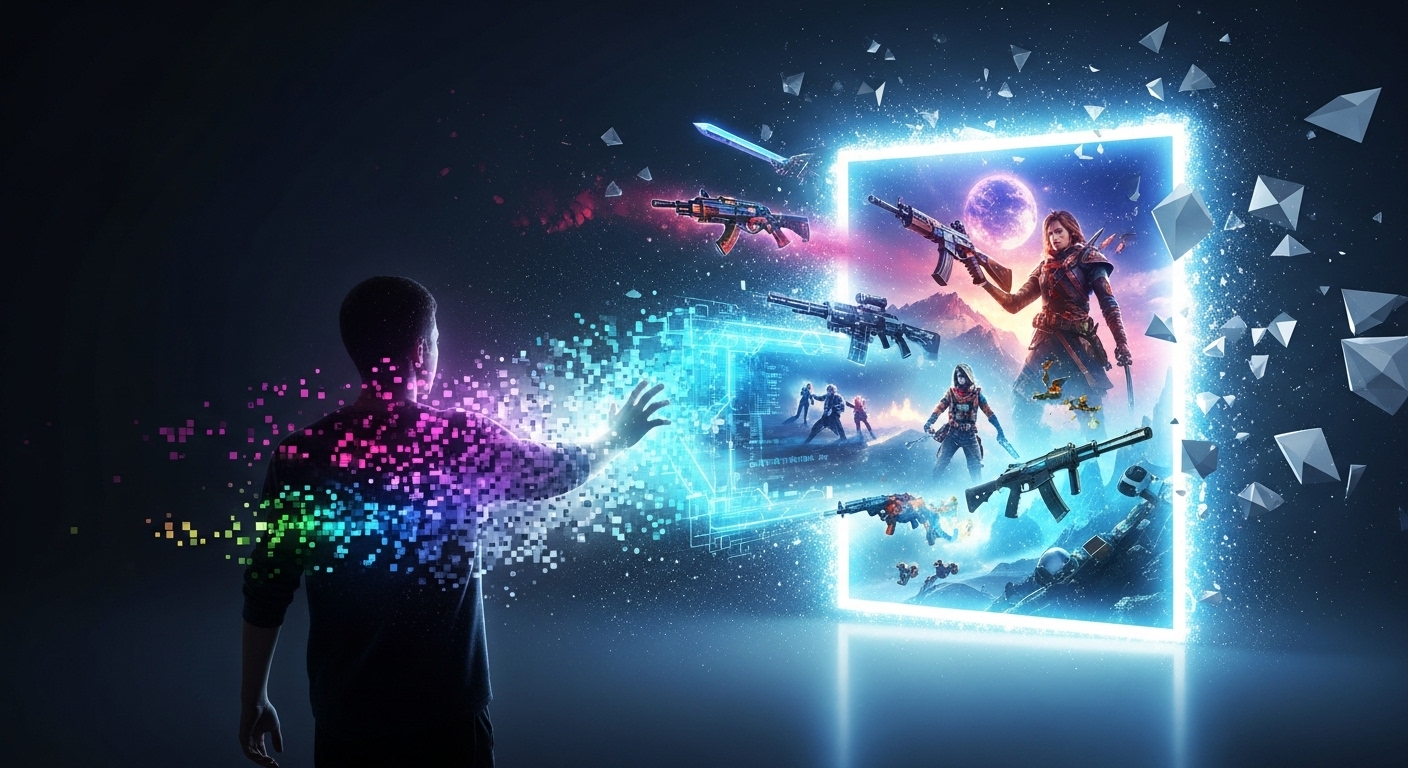Gaming has evolved into one of the most influential forms of entertainment and culture in the modern world. From humble beginnings with pixelated graphics to fully immersive virtual realities, gaming has captured the imagination of millions across the globe. Its evolution reflects technological advancements, shifts in cultural norms, and even changes in the way humans socialize and learn. This blog post delves deep into the world of gaming, exploring its history, impact, genres, technological innovations, and what the future holds for gamers everywhere.
The Origins of Gaming: From Arcades to Consoles
The story of gaming begins in the early 1970s with the emergence of arcade games. Titles like Pong, released in 1972, introduced the concept of interactive entertainment to the masses. Simple as it was, Pong became a cultural phenomenon, drawing people to arcades and sparking curiosity about digital play.
The 1980s marked the golden age of arcade gaming. Iconic games like Pac-Man, Donkey Kong, and Space Invaders became household names, not just for their gameplay but for their unforgettable characters and music. Arcades were more than just places to play; they were social hubs where friendships were forged over shared scores and cooperative gameplay.
Home consoles began to gain traction during this era as well. The Nintendo Entertainment System (NES), released in the mid-1980s, brought gaming into living rooms, making it a staple of household entertainment. This transition from arcades to home consoles laid the groundwork for the gaming industry’s future growth.
The Explosion of Gaming Genres
One of the reasons gaming has remained popular for decades is its diversity. Games span countless genres, each catering to different tastes, skills, and interests.
Role-Playing Games (RPGs)
RPGs allow players to immerse themselves in fictional worlds, assume character roles, and make decisions that influence the story. Classics like Final Fantasy and The Elder Scrolls series exemplify the genre, blending narrative depth with strategic gameplay. Modern RPGs often feature sprawling worlds, complex storylines, and character customization, providing players with virtually limitless possibilities.
First-Person Shooters (FPS)
FPS games focus on combat and precision, putting players in the shoes of protagonists armed with various weapons. Titles like Call of Duty, Halo, and Doom revolutionized the genre by combining intense action with immersive storytelling. The competitive nature of FPS games has also fueled esports, turning professional gaming into a viable career path.
Simulation and Strategy
Simulation games, such as The Sims and SimCity, allow players to recreate real-life experiences or manage complex systems. Strategy games, like StarCraft and Age of Empires, challenge players to think critically and plan ahead. These genres appeal to those who enjoy problem-solving, creativity, and meticulous planning.
Multiplayer Online Games
The rise of massively multiplayer online games (MMOs) like World of Warcraft and Fortnite has transformed gaming into a social experience. Players can interact, cooperate, or compete with millions of others worldwide. This sense of community adds a new layer of engagement, turning games into virtual social hubs.
The Cultural Impact of Gaming
Gaming is no longer just a pastime; it has become a cultural phenomenon. Games influence fashion, language, and even art. Cosplay, for instance, has turned game characters into real-life icons, while fan art showcases the creativity inspired by virtual worlds.
The storytelling aspect of games has also been recognized as a legitimate form of narrative art. Games like The Last of Us and Red Dead Redemption are praised for their emotional depth, complex characters, and thought-provoking plots, rivaling literature and cinema in their impact.
Moreover, gaming has shaped social interactions. Online multiplayer games foster collaboration and teamwork, teaching valuable skills such as communication, strategy, and leadership. For many, gaming communities provide a sense of belonging, particularly for those who may struggle to find it offline.
Technological Innovations Driving Gaming
The evolution of gaming is inseparable from technological advancements. Each new wave of technology has expanded the possibilities of interactive entertainment.
Graphics and Processing Power
Advancements in graphics have transformed gaming from simple 2D sprites to photorealistic 3D worlds. Powerful processors, high-definition displays, and sophisticated rendering techniques allow players to explore environments that are visually stunning and highly detailed. The shift from pixel art to lifelike simulations represents a technological leap that continues to push the boundaries of realism.
Virtual Reality (VR) and Augmented Reality (AR)
VR and AR technologies are reshaping how players experience games. VR immerses players in fully digital environments, while AR overlays game elements onto the real world. Games like Beat Saber and Pokémon Go demonstrate the potential of these technologies, offering experiences that blend physical movement, exploration, and interaction in unprecedented ways.
Cloud Gaming
Cloud gaming is another revolutionary development. By streaming games from powerful servers rather than relying on local hardware, players can access high-quality titles on devices that would otherwise be incapable of running them. This technology has the potential to democratize gaming, making it more accessible to a wider audience.
Artificial Intelligence in Gaming
AI is enhancing gaming experiences through smarter non-player characters, adaptive difficulty levels, and procedural content generation. Intelligent AI can create dynamic storylines and responsive worlds, offering personalized experiences that keep players engaged longer.
Gaming and Education: Beyond Entertainment
While often dismissed as mere entertainment, gaming has proven to be a powerful educational tool. Educational games can teach everything from mathematics and history to problem-solving and critical thinking.
Serious games, designed with specific learning outcomes in mind, are increasingly used in classrooms and professional training programs. Flight simulators, medical surgery simulations, and language learning games demonstrate that interactive play can accelerate learning and improve retention.
Even traditional games can foster cognitive skills. Strategy games enhance planning and decision-making, while cooperative multiplayer games improve teamwork and communication. The potential for gaming as a learning platform is immense and still largely untapped.
The Social Dynamics of Gaming
Gaming is deeply social, fostering connections across geographies and cultures. Multiplayer platforms and online communities allow players to collaborate, compete, and build friendships. The social aspects of gaming extend beyond the screen, with tournaments, conventions, and streaming platforms creating real-world connections among enthusiasts.
Esports has emerged as a major cultural and professional phenomenon. Competitive gaming tournaments draw millions of viewers worldwide, with top players achieving celebrity status and lucrative sponsorship deals. This professionalization of gaming has elevated it to a legitimate career path, complete with coaching, analytics, and rigorous training.
Moreover, streaming platforms such as Twitch and YouTube Gaming have transformed how people consume games. Watching gameplay has become entertainment in its own right, creating new avenues for community building and content creation.
Challenges and Controversies in Gaming
Despite its many benefits, gaming is not without challenges and controversies. Issues such as addiction, toxic behavior, and excessive screen time are often cited as negative aspects of gaming culture. Game developers, communities, and researchers continue to explore ways to mitigate these issues, from implementing parental controls to promoting healthy gaming habits.
The industry also faces debates over representation and inclusivity. Historically, gaming has been criticized for gender imbalance and stereotypical portrayals of characters. However, recent years have seen significant progress, with more diverse protagonists and narratives that reflect a broader range of experiences.
Monetization practices, particularly microtransactions and loot boxes, have sparked ethical and legal discussions. Balancing profitability with fairness remains an ongoing challenge for developers.
The Future of Gaming: Where Do We Go From Here?
The future of gaming promises exciting developments. Emerging technologies such as artificial intelligence, quantum computing, and advanced VR will continue to redefine the boundaries of what games can be. Adaptive storytelling, hyper-realistic graphics, and fully immersive virtual worlds are becoming increasingly attainable.
Social and cultural integration will also evolve. Games may become more intertwined with daily life, education, and professional environments. Gamification, the use of game mechanics in non-gaming contexts, is already influencing productivity, health, and social engagement.
Accessibility will likely improve, with innovations making gaming more inclusive for people with disabilities. Voice commands, adaptive controllers, and AI-driven customization will ensure that everyone can participate in the gaming revolution.
Finally, the ethical and social responsibilities of game developers will grow. Issues such as data privacy, fair monetization, and mental health considerations will shape the industry’s trajectory. Gaming will not just be about entertainment but also about creating positive social impact.
Gaming as an Art Form
As games grow more sophisticated, they increasingly occupy the space of artistic expression. Developers combine narrative, visual design, music, and interactivity to create experiences that are emotionally resonant and intellectually stimulating. Games like Journey, Ori and the Blind Forest, and Hollow Knight exemplify how art and gameplay can merge seamlessly.
This artistic potential opens new avenues for creativity. Indie developers, often unbound by commercial pressures, are exploring experimental mechanics and narratives that challenge conventional storytelling. The democratization of game development tools has empowered creators worldwide to contribute to the ever-expanding tapestry of interactive art.
Conclusion: Gaming as a Reflection of Humanity
Gaming is far more than a form of entertainment. It is a mirror reflecting human creativity, ambition, and social connectivity. It brings people together, challenges our minds, and offers experiences that were once impossible. As technology and culture continue to evolve, gaming will remain a central part of our collective imagination.
The world of gaming is vast, diverse, and ever-changing. Whether you are a casual player, a competitive gamer, a developer, or a spectator, gaming has something to offer everyone. It is a testament to human ingenuity and a celebration of the power of interactive storytelling. As we look toward the future, one thing is certain: the game is far from over.



